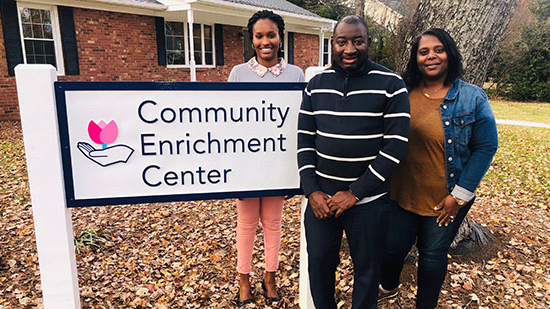As it has been said by many observers already, this current pandemic may have initially seemed like the great equalizer in terms of class and race – after all, it looked like it was taking the rich with the poor, the white with the black, the green with the dry (an Arabic expression that describes the indiscriminate voraciousness of unseeing hungry monsters).
But it is not the great equalizer. It is not at all.
Disturbingly, it might be the pandemic’s apparent indifference early on that propelled leaders to “high-stakes” expansive action that has halted – if not decimated – certain economies and businesses. Were it known early on that the pre-existing health and wealth disparities in this country would mean that those taken by the monster would be the poor, the black, the displaced, the criminalized, the already at-risk – the “low-stakes” people – how many of those “high stakes” measures would have been instituted and how many of them now will be laxed, perhaps not outright, but slowly, sneakily, unconsciously, with administrative language encouraging and nudging?
We have already seen and noted some of that laxing already – either in our communities or in the discourses and rhetoric that surround us.
Indeed, there are many “low-stakes” people who are uniquely challenged by COVID-19’s ravages and for whom this pandemic is anything but the great equalizer. Rather, COVID-19 has revealed the great disparities in privilege that make self-preservation in the face of an invisible viral army difficult, if not impossible, for many locally and globally.
The quarantine and self-isolation many of us are experiencing is a luxury many others cannot afford.
Many at-risk immigrants, particularly undocumented individuals, are “essential workers” (such as farmworkers and meat processing plants workers). As they go about the business of doing their essential work, not only must they contend with risk of infection to them and their loved ones without healthcare or unemployment benefits, they must do so while also contending with ICE, which does not care that they are “essential” to this country’s economy. If an undocumented person gets sick, they must weigh the benefits of seeking medical attention with the risk of being picked up and detained.
And the detention centers, like the prisons, are cramped. When the disease starts and spreads, where else can it go but everywhere to eat the green with the dry?
Self-isolation, in these conditions, is a cruel joke.
Meanwhile, the “Public Charge”[1] rule will prevent documented immigrants from seeking much needed (especially under COVID-19 conditions) public assistance (food etc.) since use of public benefits could hurt their naturalization process or their sponsorship of a family member for a visa. The Public Charge will adversely impact pregnant women, elders, or families with sick children who will worry that seeking health assistance could still hurt their chances[2].
U.S. Citizen and Immigration Services offices have suspended in-person services. Hearings (including asylum), applications, and ceremonies are on hold. For every hearing, interview date, ceremony there is a life (and many more tied to it) that has waited in patience for many years to get to that date, that hearing, that ceremony. Who knows how much longer the wait will be? In the meantime, families on the brink of being reunited now will not be. Husbands will not be joining wives. Fathers and mothers will not be joining children. At our southern border, asylum seekers must now stay in Mexico while their applications are being processed. Fear of the virus and fear of the asylum program ending are twin fears – either could mean death. They wait without the certainty of when and if their application will be reviewed or rescheduled.
Refugees and internally displaced individuals are also uniquely challenged by this pandemic. In densely populated camps – in tents and tenements – the risk of infection is higher, and with little or no access to treatment, basic health services, or hygiene, the risk of fatality is higher as well. Existing support in the form humanitarian supplies and relief workers may be reduced or cut off completely to prevent the spread of the virus. Because refugees and the displaced are even “lower-stakes,” some NGOs and governments will likely redirect their attention and resources elsewhere.
But it is only to viruses and diseases (real and metaphoric, biological and institutional, physical and structural) that those who have been marginalized, peripheralized – to the borders, the camps, the detention centers – are “low-stakes.” In our communities, our towns, our villages, our cities, our margins and peripheries, this precarity has been met with persistence, and the work of advocacy and organizing is being done by and for community members to protect themselves. We see this happening in Greensboro as communities band to support each other, as mayors here and elsewhere fight for immigrant and refugee rights, as asylum seekers use their skills to provide aid and basic healthcare at the border, as refugee and migrant doctors care for other refugees and migrants in the camps.
In the face of viral voraciousness and institutional injustice, the work of the small, the local, the communal pulses, breathes, and thrives. We hope that you can be part of the powerful small communities that need their neighbors, brothers, and sisters now more than ever. To learn how to support our work and the communities that are persisting together in the face of precarity and pandemic, see the list of supplies we are currently collecting and consider making a financial contribution to support our work.
Diya Abdo, Ph.D. د. ضياء عبده
Director, UNCG Center for New North Carolinians
4/14/2020
[1] https://www.uscis.gov/greencard/public-charge
[2] https://www.nejm.org/doi/full/10.1056/NEJMp2005953
